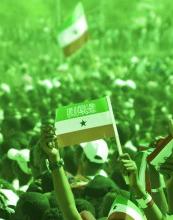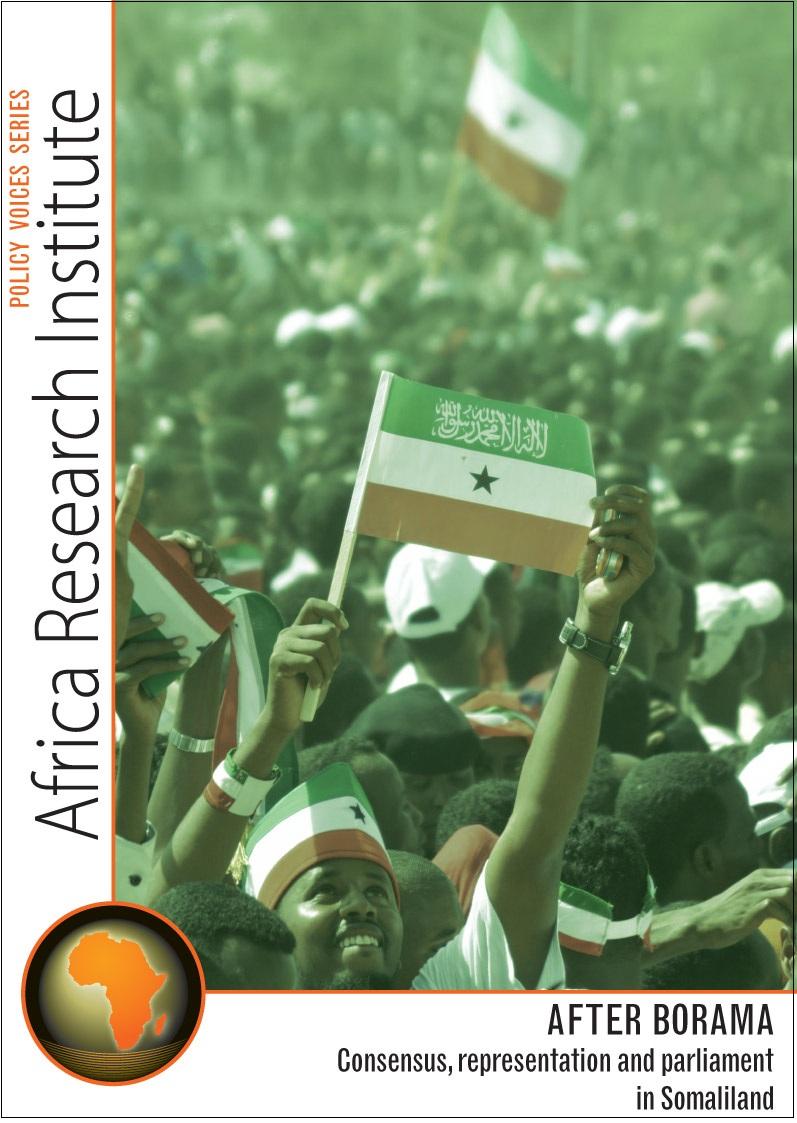After Borama: consensus, representation and parliament in Somaliland – new report from Africa Research Institute

 “Elections matter in Somaliland. They are not mere formalities, conferring a thin veneer of legitimacy on a permanent incumbent; nor are they conducted solely as a sop to foreign donors insisting on greater democracy; nor is the prime motivation to further the pursuit of international recognition of Somaliland as a sovereign state. For most Somalilanders, elections are above all an essential component of internal peace and security…” Edward Paice and Hannah Gibson, Africa Research Institute (May 2013).
“Elections matter in Somaliland. They are not mere formalities, conferring a thin veneer of legitimacy on a permanent incumbent; nor are they conducted solely as a sop to foreign donors insisting on greater democracy; nor is the prime motivation to further the pursuit of international recognition of Somaliland as a sovereign state. For most Somalilanders, elections are above all an essential component of internal peace and security…” Edward Paice and Hannah Gibson, Africa Research Institute (May 2013).
Twenty years since the historic Borama conference in Somaliland, Africa Research Institute has produced a remarkable report on the development of democratic politics in the country. It features interviews with a range of key Somalilanders who played a part in the historic moments of Somaliland’s politics over the last 20 years and continue to do so today.
The report does not explicitly attempt to explain why Somaliland has achieved its political success of the last 2 decades, but rather to illustrate the thinking, from Somalilanders, that has underpinned this success.
Whilst it is important to acknowledge the role “˜traditional’ political structures have played in the country’s transition, it must be understood that these structures – notably the Guurti (a meeting of traditional elders) – had to be actively engaged within this modern political process. Somalilanders (or their representatives) sat down together, for months at a time, and came up with a workable political solution that incorporated established political structures into a new democratic system.
As Michael Walls writes in his postscript: “If Somaliland’s success shows us anything, it is the importance of external links – but also the importance of real local “ownership” of political and developmental processes.”
Looking forward, Abdirhamn Yusuf Duale, Somaliland’s Minister of Information, asserts that whilst local councils of elders played a crucial part in post-war peacekeeping and administration, “what we have now is an old group of inexperienced people with a central role in legislation. We need people who can talk about foreign policy and economics and legislation.”
You can read the report in full here.





